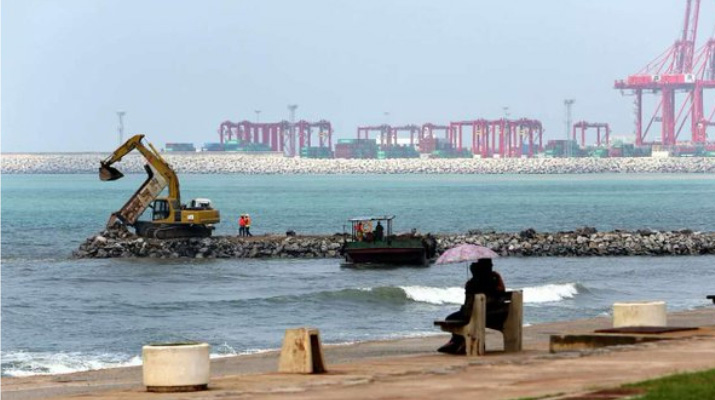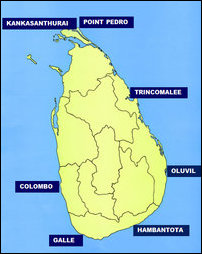India Competes with China over Belt and Road Ports in Sri Lanka

India has agreed to fund Sri Lanka’s Kankesanthurai Harbour Port, a three year development set to handle general cargo. The US$45 million project sees the existing, Sri Lanka Navy facilities be re-positioned as a commercial port, capable of handling larger vessels. The entire site comprises some 50 acres, and will see the harbor widened by nine meters, the existing pier refurbished and a second pier added. Work is due to start early next month. Once these developments are made, the port will be able to accommodate vessels up to 8,000 DWT.
The Port, locally known as KKS, is situated on the North-West coast of Sri Lanka near Jaffna. It will compete with the China-built and funded Colombo Port City which lies just to the north of Colombo, Sri Lanka’s capital. KKS is also directly connected by rail to Colombo, a journey taking four hours.

KKS, which previously had a long history as a port serving Indian cargo, was severely damaged during the Sri Lankan civil war. It is strategically placed and will offer closer proximity to India’s Chennai Port, the largest port on India’s east coast. Chris Devonshire-Ellis of Dezan Shira & Associates comments: “For obvious reasons, Indian shipping and import-export industry with Sri Lanka will opt to use the KKS Port rather than Colombo Port City, potentially calling into question the longer term viability of some of China’s investments and bringing into focus the manner in which some of the Belt and Road nations are able to play off China against countries such as India to extract optimum infrastructure deals.”
About Us
Silk Road Briefing is produced by Dezan Shira & Associates. Chris Devonshire-Ellis is the practice Chairman. The firm has 26 years of China operations with offices throughout China, Asia and Europe. Please refer to our Belt & Road desk or visit our website at www.dezshira.com for further information.
 Related Reading:
Related Reading:
![]() China’s Belt and Road Initiative is Being Blamed for Sri Lanka’s Hambantota Port Problems. But the Real Story is Rather Different.
China’s Belt and Road Initiative is Being Blamed for Sri Lanka’s Hambantota Port Problems. But the Real Story is Rather Different.





